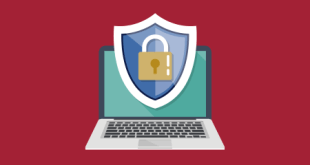By Mitish Chitnavis, Chief Technology Officer, iValue InfoSolutions
Human life online is beginning to merge with the way it exists offline. Today, individuals are living in a digital world than ever before, driven by the internet, smart devices and digital transformation. Any online usage generates information or data about the individual’s activities and interests, where the user has no control over it and its usage. Smart devices today have several uses, including work, shopping for products and services, entertainment, among others.
However, it is quite a common occurrence that whenever there is a need to download an app or leverage an online service, a permission request to access contacts, location, photos and other information on the device is made by the service provider. The user gives it without a second thought, many a time. Yes, customers provide their personal information to companies that cater to their requirements and expect the latter to safeguard it. Rather, individuals are complacent in protecting personal information whey they routinely log in to their computer, laptop or mobile phone to shop, check for news updates or to read an office e-mail. Apps or data service providers are trusted with the task of safeguarding personal data they collect which is traded for the right to use their product or service.
The exponentially growing active internet users and new-age digital technologies and tools are making collection of personal information a lot easier today. However, the bitter truth is, personal data collected by companies is not always considered as private, and could fall into the hands of wrong people who misuse it. Individuals can be harassed by cyber-criminals who have access to their personal data or it can be sold to advertisers without the former’s consent, among other unwarranted uses. Besides being harmful for individuals, these consequences impact organisations adversely too, with challenges of cyber-crime, data breaches and insider threats that have to be addressed.
Data Privacy Day is a reminder for all users of digital devices and platforms to value and protect personal data. This Day is observed on the 28th of January every year, in the United States, Canada, 47 European Countries, Nigeria and Israel, to raise awareness, promote privacy and data protection best practices.
It is critical for individual users to have knowledge of the privacy compromise and the value of personal information being shared. They should decide whether or not to share data by considering the advantages of the tradeoff and provide only relevant information for the specific offering.
Apps on devices should be constantly updated with privacy settings managed to limit the amount of information to be shared and unused apps deleted. Data can be protected with strong and unique passwords, in addition to enabling Multi-Factor Authentication (MFA) for sensitive personal data.
Organisations should respect customers’ privacy to gain the latter’s trust and enhance their own brand reputation. Honestly communicating to customers on how the personal information is collected and leveraged for legitimate use only, is the first step. Encryption, Two-factor Authentication, Access Control and Data Loss Prevention are some of the technologies that are commonly used to protect customer’s data and keep it more secure. In addition to this, it is equally crucial to take responsibility and ensure the data is in safe hands when it is shared with suppliers and business partners, who then get access to it too. Employees should also be educated to protect customers’ data and their role in securing it. Data Privacy framework and best practices should be adopted by companies, with the implementation of data privacy regulations. These measures help in enhancing the organisation’s brand reputation, provide the much-required competitive edge and support ethical practices.
Finally, attaining a fine balance between personalization for better customer experience and Data Privacy is the key to stay ahead of the curve and succeed in business. Yes, consumer data is the new currency and has to be managed responsibly.
 Newspatrolling.com News cum Content Syndication Portal Online
Newspatrolling.com News cum Content Syndication Portal Online







